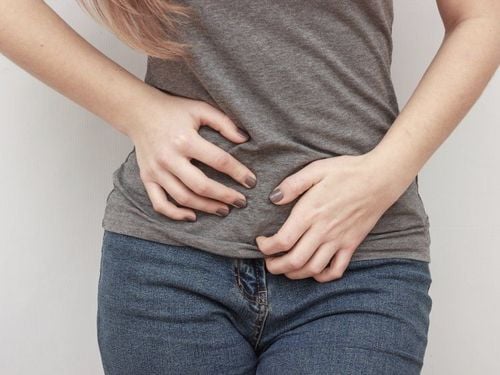Can a woman get pregnant if she doesn't have her period? This is quite possible, just not so common. So what is the role of menstruation, and how does it work? How are menstruation and ovulation correlated?
1. Menstruation and Pregnancy
Menstruation is the clearest sign that your reproductive system is functioning properly. It marks the end of one cycle. The female reproductive system is quite complex, but it can be summarized as follows (in the case of a woman with a normal menstrual cycle):
- At the start of menstruation, specific hormones signal the ovaries that it's time to produce an egg. The egg, or oocyte, is contained within a follicle filled with fluid and nutrients, resembling a tiny balloon.
- During the first half of the cycle (from days 12 to 14), hormones are produced to stimulate the growth of the follicle and egg. After this process, the egg matures.
- Midway through the cycle (usually around day 14), the follicle ruptures and the egg is released from the ovary—this is ovulation.
- In the second half of the cycle (from about days 15 to 25), after ovulation, the hormone progesterone helps the uterine lining, or endometrium, to grow and prepare for a fertilized egg, also called an embryo. During this process, the endometrium thickens and undergoes physiological changes to support the development of the embryo.
What happens next depends on whether or not you have sex within 5 days of ovulation. If you do, sperm will swim into your reproductive tract, waiting. Sperm can survive in your reproductive tract for up to 5 days. Having sex during ovulation, and the day after, also has the potential to result in pregnancy. You will become pregnant when sperm meets and fertilizes your egg.
If you are fertilized, the embryo will implant itself into the lining of your uterus about 7 to 10 days after ovulation. This process stimulates the body to produce various hormones to prepare for pregnancy.
If pregnancy does not occur, the level of progesterone decreases, signaling the shedding of the endometrial lining, which is when menstruation happens. With a normal cycle, when the lining sheds, the body starts producing hormones that trigger the ovulation cycle for the next month. Menstruation marks the end of one cycle.
When a woman has her period, she has usually (but not always) ovulated within the past 2 weeks. Ovulation is necessary to get pregnant. Women with regular cycles will usually ovulate regularly.
Trắc nghiệm: Sự hiểu biết của bạn về kinh nguyệt
Kinh nguyệt có vai trò quan trọng đối với sức khỏe sinh sản, do đó nữ giới cần chủ động trang bị kiến thức để theo dõi và kiểm soát tình trạng sức khỏe. Bài trắc nghiệm sau đây sẽ giúp bạn hiểu hơn về chu kỳ kinh nguyệt của bản thân.2. Ovulation Without Menstruation
If you don't have your period, it could be that ovulation is occurring infrequently. There are several reasons for this issue, but it doesn't mean that you won’t suddenly ovulate without having a period beforehand.
As mentioned above, menstruation marks the end of a cycle. If ovulation occurs and you don't get pregnant, menstruation will follow. But what happens if you have an irregular cycle? Depending on the cause of the menstrual irregularities, your cycle may suddenly start.
We know that the end of the cycle is menstruation, but there may be no clear signs indicating that your body has entered the cycle. Ovulation can occur without you noticing. You only know you've ovulated when you get your period or if you have sexual intercourse during your "fertility window" and become pregnant. Sometimes, due to an irregular cycle, you may not even realize you're pregnant because of the irregular periods, making it hard to track when you missed your period.
3. Irregular periods and ovulation
Ovulation without menstruation can occur. This is due to old uterine scars or certain hormonal medications.
It is also possible to have bleeding that resembles menstruation but ovulation does not occur, usually because the uterine lining becomes too thick, unstable, and sheds on its own. The uterine lining thickens but ovulation does not occur when the hormone estrogen, which is secreted before ovulation, continues to be produced without any interference from another female sex hormone, progesterone, which is usually present after ovulation.
There are many causes of menstrual irregularities, many of which affect ovulation or interfere with pregnancy. In some cases, the cause of menstrual irregularities is not clear.
Some of the factors that affect ovulation and the ability to get pregnant include:
3.1 Polycystic Ovarian Syndrome (PCOS)
PCOS is when a woman’s body produces too much androgens – sometimes referred to as male sex hormones. Too much male sex hormones prevent mature eggs from developing and being released from the fallopian tubes.
Up to 21% of women have Polycystic Ovarian Syndrome, the most common cause of infertility due to absent ovulation. Polycystic Ovarian Syndrome can be caused by a genetic disorder, but lifestyle factors, such as being overweight and a sedentary lifestyle, can also cause the condition.
3.2 Perimenopause
Perimenopause is the period when estrogen and progesterone naturally decline, causing disruptions in ovulation and menstruation before they eventually stop altogether, signaling the onset of menopause. Typically, perimenopause lasts for about 4 years, but this phase can be longer for some women.
The average age for the onset of perimenopause is 47, while the average age for the final menstrual period is 51. Perimenopause ends, and menopause begins when a woman has not had a period for 12 consecutive months.
Although pregnancy is still possible during perimenopause, it is much more difficult because the eggs released are older and may have a lower chance of being fertilized. Additionally, eggs may not be released in every cycle.
3.3 Thyroid disease
The thyroid is a butterfly-shaped organ in the neck that regulates hormones, including those that affect ovulation and menstruation. One study found that nearly 14% of adolescent girls with thyroid dysfunction also had menstrual irregularities.
3.4 Weight
Being overweight or underweight can cause a chain reaction that disrupts endocrine function. This can cause ovulation to disappear or occur intermittently, leading to irregular menstruation.
According to a study published in the journal BMC Women's Health, women with a body mass index lower than 20 or higher than 25 are 1.1 times more likely to have menstrual irregularities than those with a BMI of 20-25.
3.5 Stress
Stress affects the entire body, including ovulation. In a study involving healthcare workers, those with higher levels of perceived stress were more likely to experience menstrual irregularities compared to those who did not feel stressed.
4. How to Get Pregnant with Irregular Periods
When you ovulate, you have the potential to get pregnant, but if your periods are irregular, your chances of pregnancy may be lower. The most important thing is to have regular unprotected sex, ideally every 2-3 days.
If you are facing health issues that affect fertility, appropriate treatment can help improve your chances of getting pregnant.
Safe weight loss or gain can also have a positive effect. According to the PCOS Awareness Association, losing 5-10% of body weight helps regulate ovulation in overweight women. You can consult your doctor for safe weight loss or gain plans, such as a diet and exercise regimen.
If you have menstrual disorders due to hyperthyroidism or hypothyroidism, your doctor will prescribe medication to adjust your thyroid hormones.
5. Do Menstrual Disorders Affect Pregnancy Health?

Menstrual disorders can affect pregnancy health, depending on the cause of the disorder. Women should consult a specialist about the possible risks.
Pregnant women with PCOS are at higher risk of:
- Miscarriage
- Gestational diabetes
- Preeclampsia – when blood pressure suddenly rises after 20 weeks of pregnancy
- Preterm birth
Pregnant women with untreated hyperthyroidism are at risk of stillbirth, premature birth, or a baby with a birth defect.
Many women have menstrual disorders, most often due to irregular ovulation. Irregular ovulation makes it more difficult to get pregnant, but doctors can help increase your chances of conceiving by treating the underlying condition that is causing the menstrual disorder and monitoring your progress from conception, helping to ensure a healthy pregnancy and a healthy baby.
6. If You Want to Get Pregnant
Doctors usually recommend trying to conceive within one year (or six months if you are over 35) before seeking fertility evaluation. However, this does not apply to women who have signs or symptoms related to fertility issues, including amenorrhea (absence of periods).
If your period does not come, you may be facing infertility. It's a good idea to bring your partner along for the checkup, as the cause of your difficulty in conceiving may not be one-sided, and male infertility is more common than many people realize.
Depending on the cause of your anovulation (lack of ovulation) and whether there are other reproductive issues, treatment options may include lifestyle changes, safe weight loss or gain, adjustments in medication, or treatment of underlying causes.
7. If You Do Not Want to Get Pregnant
If you do not want to get pregnant, you should not consider your irregular periods as a form of contraception, even if you have been diagnosed with infertility, unless advised otherwise by your doctor.
As mentioned above, depending on the cause of your absent periods, you may still be ovulating without having a period to signal that you could become pregnant. Please consult your doctor about the most suitable contraception method for you.
To arrange an appointment, please call HOTLINE or make your reservation directly HERE. You may also download the MyVinmec app to schedule appointments faster and manage your reservations more conveniently.
Article reference source: verywellfamily.com, healthline.com













